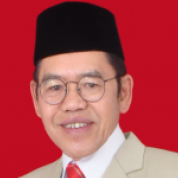
Hasbullah Thabrany
Senior Researcher and Policy Adviser
Center for Social Security Studies, Universitas Indonesia and ThinkWell Global
Indonesia
Hasbullah Thabrany Senior Policy Adviser, ThinkWell Organization and Chairman of the Indonesian Health Economics Association (InaHEA) Hasbullah Thabrany was a professor and former dean of the School of Public Health and former chairman of the Centre for Health Economics and Policy Studies, Universitas Indonesia. He is now serving as a Senior Policy Adviser on Strategic Purchasing on Family Planning and Maternal and Child Health with ThinkWell, funded by Melinda&Gates Foundation. Mr Thabrany has been working to evaluate the development of non communicable diseases in particular the effect of cigarettes in Indonesia. He has been instrumental in advocating raising cigarette excise to control future NCDs and high medical claim costs for the National Health Insurance (JKN) in Indonesia. Dr Thabrany worked with RAND Corporation in Santa Monica, California, from 1992 to 1995. Realising that there was a severe shortage of professionals in health insurance and social security, Dr Thabrany established PAMJAKI (Association of Health Insurance Professionals of Indonesia) in 1998. He served as its chairman until October 2010. He was a key person in reforming health care and social security in Indonesia when he was a secretary of the Task Force for social health insurance reform, established by President Megawati. He publishes a book entitle Jaminan Kesehatan Nasional (JKN), detailing the design and current achievement of UHC in Indonesia. He was the Chair of the Center for Health Economics and Policy Studies, Universitas Indonesia. Since the National Health Insurance (JKN) was implemented in 2014, he has been conducting research and evaluation to advocate the JKN to be implemented consistently with the principles of improving access and quality of care. From 2016-2018 he served as Senior Health Financing Adviser to the National Social Security Council (DJSN) under the BANTU—a USAID funded project. He established the Indonesian Health Economic Association in 2013 and becomes the chairman since then. Dr Thabrany has a medical degree from the Universitas Indonesia and MPH & DrPH degrees from the University of California, at Berkeley, USA. ABSTRACTReducing Fuel Subsidies to Finance the Chronic Deficits of the UHC in Indonesia Hasbullah Thabrany Chairman, the Indonesian Health Economic Association (InaHEA) Email: [email protected] Non communicable diseases in Indonesia has been taking about 60% of lives in the last decades in Indonesia. To anticipated the growing NCDs and to prevent people from impoverished, Indonesia launched integrated health coverage by establishing the National health Insurance Scheme (Known as JKN) in 2014. Currently the JKN covers more than 205 million people, about 75% of the 266 million people. The single payer JKN is now the biggest UHC under a single database in term of population coverage. Despite increasing utilization of the JKN benefits, protecting ten of millions of people from impoverishments, the JKN has been suffering from five year consecutive deficits. Poor and inclining toward more political considerations in setting the contributions, the JKN is struggling to ensure sustainability. Last year, the Government fill the financial gaps from cigarette tax income stimulating debates about financing NCDs via sin-tax. About 30% of the JKN spending has been for NCDs. Many believe that NCDs will put more burden to the Indonesian UHC. The Indonesian UHC has been suffering from five consecutive deficits. Financing for the deficits becomes big debates recently. Many argue that Indonesia has not adequate fiscal capacity. However, the author found that it has been malfunction of public policy in Indonesian public finance policy. For example subsidies for oil, gas and electricities in 2019 reach IDR 157 Trillion while the government subsidy to cover 107 million low income people is only IDR 29.5 Trillion, or about 15%. Who are the users of oil and gas subsidies? Not the low income. This mistargetting of the public fund should be corrected inspite of strong political opposition. In addition, increasing contributions are also a viable options given that the economic growths have been quite good at more 5% annually in the last five years. At the same time, contributions rates have not been increased. Lastly, sin-tax from cigarettes potentially could increase the UHC fund with more than IDR 50 Trillion. All of those viable options can be done if the Government has a political will.
| SESSION | |||
|---|---|---|---|
| 2 FEB, 2019 | 15:30-17-30 hrs. | PS 3.2 | Financing of NCD Response: Reality-Testing Domestic, Blended and ODA Finance Options |
